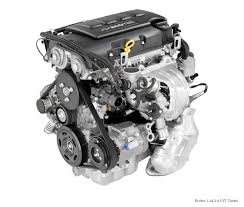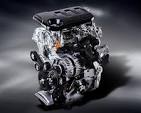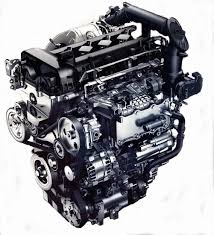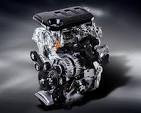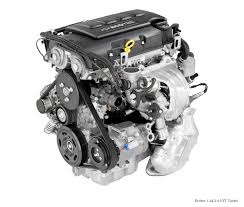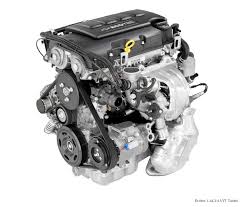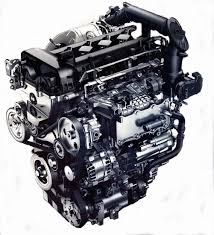 AI Blog Generation – Mass Content at Lightning Speed!
AI Blog Generation – Mass Content at Lightning Speed!
How to Choose the Right Used Chevy Engine for Your Vehicle
Written by Turbo Auto Parts » Updated on: June 17th, 2025 280 views

When it comes to choosing a used Chevy engine for your vehicle, the process can feel overwhelming. However, with a bit of knowledge and the right approach, you can find a reliable engine that meets your needs without breaking the bank. Chevy engines are known for their durability and performance, but even the best engines can experience wear and tear over time. This makes buying a used engine a cost-effective solution, but it’s essential to be diligent during the process. Below are key considerations to help guide you in selecting the right used Chevy engine for your vehicle.
1. Determine Your Vehicle’s Specific Engine Requirements
The first step to selecting the right used engine is understanding your vehicle’s specific engine requirements. Each Chevy model comes with different engine options based on the year, make, and model. For instance, in a Chevrolet Silverado, each engine has its own specifications. You can find your engine code in your vehicle’s owner’s manual or under the hood of your car on the emission label.
It's crucial to match the engine type to your vehicle to avoid compatibility issues, which could lead to additional repair costs or installation problems. Make sure to cross-reference the engine’s serial number with your car’s Vehicle Identification Number) for accurate matching.
2. Understand the Engine’s History
Knowing the history of the used Chevy engine is key to making a wise purchase. The engine's previous performance can tell you a lot about how it will function in your car. Key aspects to look for include:
Mileage: Lower mileage often indicates less wear and tear, which means the engine could last longer. However, some high-mileage engines may still be in good condition if they were well-maintained.
Maintenance records: A used engine that has regular maintenance records is generally more reliable. Engines that have been regularly serviced (oil changes, tune-ups, etc.) tend to perform better.
Accident history: If the engine was involved in an accident, it’s important to assess the damage. Salvage engines can be repaired, but make sure they are properly restored before committing to the purchase.
If you’re buying from a reputable seller, ask for a Vehicle History Report to gain a comprehensive look at the engine’s background.
3. Inspect the Engine for Wear and Damage
Before purchasing, physically inspect the engine or ask for detailed pictures if you’re buying online. Look out for the following signs of wear and damage:
Leaks: Engine or coolant leaks indicate potential internal damage. If you see leaks, proceed with caution.
Corrosion: Rust or corrosion on the engine’s surface can signal moisture exposure, which could mean the engine has been sitting for a long time or wasn’t properly stored.
Check compression: Compression is a good indicator of the engine’s internal health. Low compression might point to worn-out piston rings or valves, which could result in poor performance or costly repairs down the line.
For buyers who are unfamiliar with the mechanics of an engine, it may be a good idea to have a professional mechanic inspect the engine before purchasing.
4. Verify Compatibility and Fit
Choosing the right used Chevy engine involves more than just selecting the right model. You need to ensure that the engine you’re considering will fit into your vehicle seamlessly. The engine mounts, transmission compatibility, and electrical systems must align with your current setup.
If you’re upgrading or downgrading in engine size (for example, switching from a V6 to a V8), you may face additional expenses related to modifications, such as new mounts, wiring harnesses, or even changes to the exhaust system. Always factor in these potential costs before making your decision.
5. Buy from a Reputable Seller
Purchasing a used engine is an investment, and it’s crucial to buy from a trustworthy source. Reputable sellers like salvage yards, certified auto part dealers, or specialized engine suppliers have a level of assurance when it comes to quality. Many of these suppliers have warranties and guarantees, which can protect you in case the engine has undisclosed issues.
Turbo Auto Parts, for example, high-quality used engines, including Chevy engines, with a comprehensive 3-year parts warranty. Buying from a well-established seller not only gives you peace of mind but also often means that the engine has been inspected and tested for performance.
6. Consider the Warranty
Not all used engines come with a warranty, but it’s worth seeking one that does. A warranty can provide added protection and help cover costs if the engine fails prematurely. Look for sellers that have at least a short-term warranty to safeguard your purchase. Turbo Autoparts provides a 3-year parts warranty, ensuring that your investment is protected and you have coverage in case of any issues.
7. Look for Certified Pre-Owned or Remanufactured Engines
If you want additional peace of mind, consider buying a certified pre-owned or remanufactured Chevy engine. Certified pre-owned engines undergo thorough inspections and come with certifications that guarantee their quality. These engines often perform like new and can come with extended warranties.
Remanufactured engines, on the other hand, are used engines that have been taken apart, cleaned, and rebuilt to meet the manufacturer’s standards. While they may cost more than a standard-used engine, they improve reliability and performance.
8. Assess the Price
Finally, it’s important to assess the price of the used Chevy engine. Used engines generally have substantial cost savings compared to new ones, but the price should align with the engine’s condition. Compare prices from different sellers to ensure you’re getting a fair deal, but beware of prices that are too low—they could indicate hidden issues or defects.
Conclusion
Choosing the right used Chevy engine doesn’t have to be complicated. By determining your vehicle’s specific requirements, investigating the engine’s history, inspecting for damage, ensuring compatibility, and buying from a reputable source, you can find a reliable engine that suits your budget. Keep these tips in mind to ensure that you make a well-informed decision and get your Chevy back on the road with confidence.
Note: IndiBlogHub features both user-submitted and editorial content. We do not verify third-party contributions. Read our Disclaimer and Privacy Policyfor details.
Copyright © 2019-2025 IndiBlogHub.com. All rights reserved. Hosted on DigitalOcean for fast, reliable performance.


